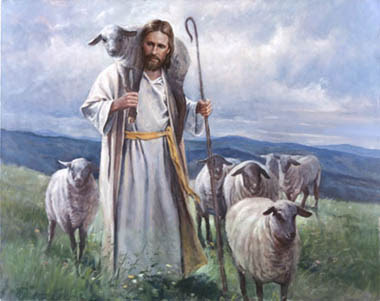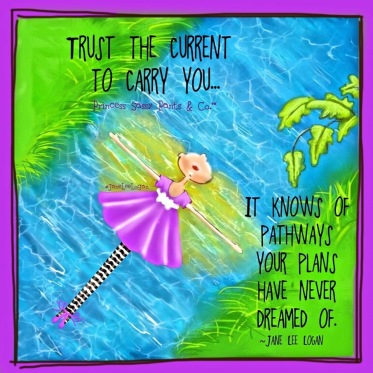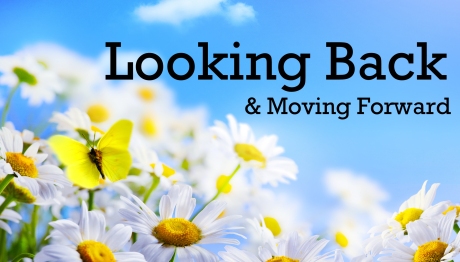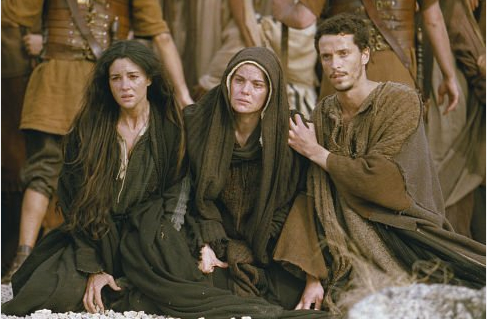It’s been a year since my last post and that’s simply because it felt like my “well of words” had run dry and I had said all that I could say. In this my 11th year of being a widow, I have learned many things about myself and about the Lord. I have determined that life without my Savior and Lord – The Great Shepherd – is simply impossible.
At the graveside ceremony of my husband Bob I had requested that the pastor read Psalm 150 which is a psalm of nothing but praise. For some reason Psalm 23 was read instead and I was not happy. As I look back now, though, I can see that perhaps the reading of Psalm 23 was really for me.
The main job of a shepherd is to guide, provide food and water, protect and deliver, gather back to the herd those who are lost, and to nurture and provide security. How many times have I needed guidance, provision, protection, deliverance, nurtured, security and to be gathered back to the heart of the Shepherd! No matter how many friends and family a widow has around her they cannot provide for her deepest needs. They have their own lives and their own families that need them. When you become a widow, you realize that it’s really just God and you and if you desire it, your relationship with the Shepherd can change and grow much deeper.
There are many days that I don’t talk much to anyone but God and my conversation with Him can go on off and on all day long. After our daughters left home my stay-at-home wife days had long hours where there was no conversation until Bob got home from work. So, I actually had some practice in lone conversation with God. But, it was different because I could always depend on having my husband during the evenings and on weekends to talk to about life, to share things, to troubleshoot problems, and to pray with me. This has been a great loss and is where my relationship with God has deepened simply because I need someone to talk to each and every day.
In thinking about my Lord the Great Shepherd this week, I have also been pondering why the angels came to the shepherds in the fields first with the good news of the birth of Christ. Common shepherds. Christ the Good Shepherd. There’s a commonality there and I have been determined in my musings to find what that might be.
This morning I came across an article called “Why Shepherds?” written by Jean Boonstra. She beautifully answered my questions about this and I want to share her reasoning here with you because it is different than anything I have ever heard in a Christmas message.
“The shepherds who navigated the dark streets of Bethlehem to find the newborn baby were not the kind of men that regularly made kingly visits. These men were separated from mainstream society and likely their language, habits and associations would have been repulsive to those living in the homes they passed.
So, why did a host of angels bring these men the glad tidings that Jesus was born? I believe there are three reasons.
1. This foreshadowed Jesus’ role as the Good Shepherd. By heralding the good news of Jesus’ birth to the shepherds, Jesus hinted right from the beginning what His plan was. “I am the good shepherd. The good shepherd lays down his life for the sheep.” John 10:11 God’s plan from the foundation of the world was for Jesus to give His life for us, just as the shepherds would have done for their sheep. The angels heralded His birth to those who exemplified this mission
2. God despises our smugness, prejudice and pride. The shepherds were undoubtedly coarse, unlearned men. Men that the scribes and pharisees would have delighted to shun and avoid. Men despised and rejected—just as He would soon be. In the light of divinity each of us is filthy, simple and broken. The heralding of His birth to some of the lowest of the low reminds us that we are all unwashed in comparison to the Divine. Jesus stooped to our level to pay the ultimate sacrifice.
3. He longs to reach the unreachable. The shepherds sitting out that dark night watching their sheep in the moonlight were exactly who He came to save. Later Jesus reminded His followers that “Those who are well have no need of a physician, but those who are sick. I did not come to call the righteous, but sinners, to repentance.”Mark 2:17 Sinners—the group that the “righteous” had shunned—are the very people that He came to this Earth as a babe to save. Sinners like the shepherds. Sinners like you and me.”
God’s plan for widows was to have Christ our Shepherd in place to provide everything that we need in our lives. When He created us He knew that at this time of our lives we were going to be widows. It did not take Him by surprise at all. He knew it and He planned for it. When our husbands died we weren’t just thrown out there to figure out everything by ourselves. Our Shepherd was right there to pick us up and carry us in His arms. Later, when we were strong enough to walk, He walked beside us leading and guiding us along. He continues to lead and guide me, let me cry when I need to, listen to me when I long to have Bob to talk to about things, console me and speak quietly to my heart and soul when I or someone in my family has a problem that I so desperately want to fix, provides for me and gives me the security that I need.
Christ, my Good Shepherd who is always, always, always with me and will never ever leave me! The greatest blessing a widow can have!













